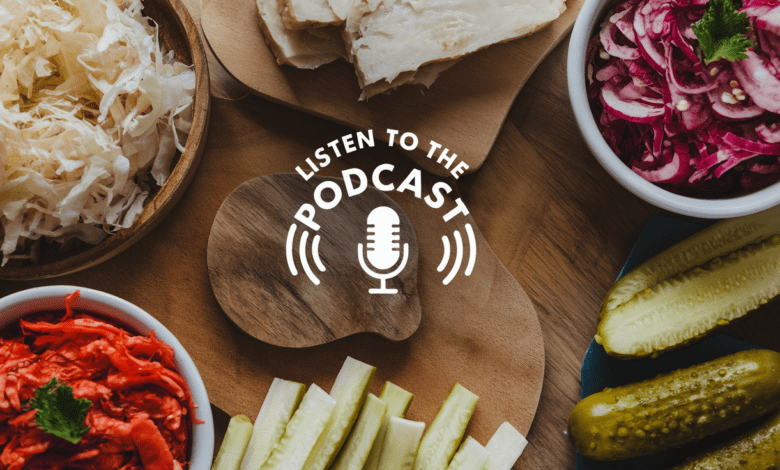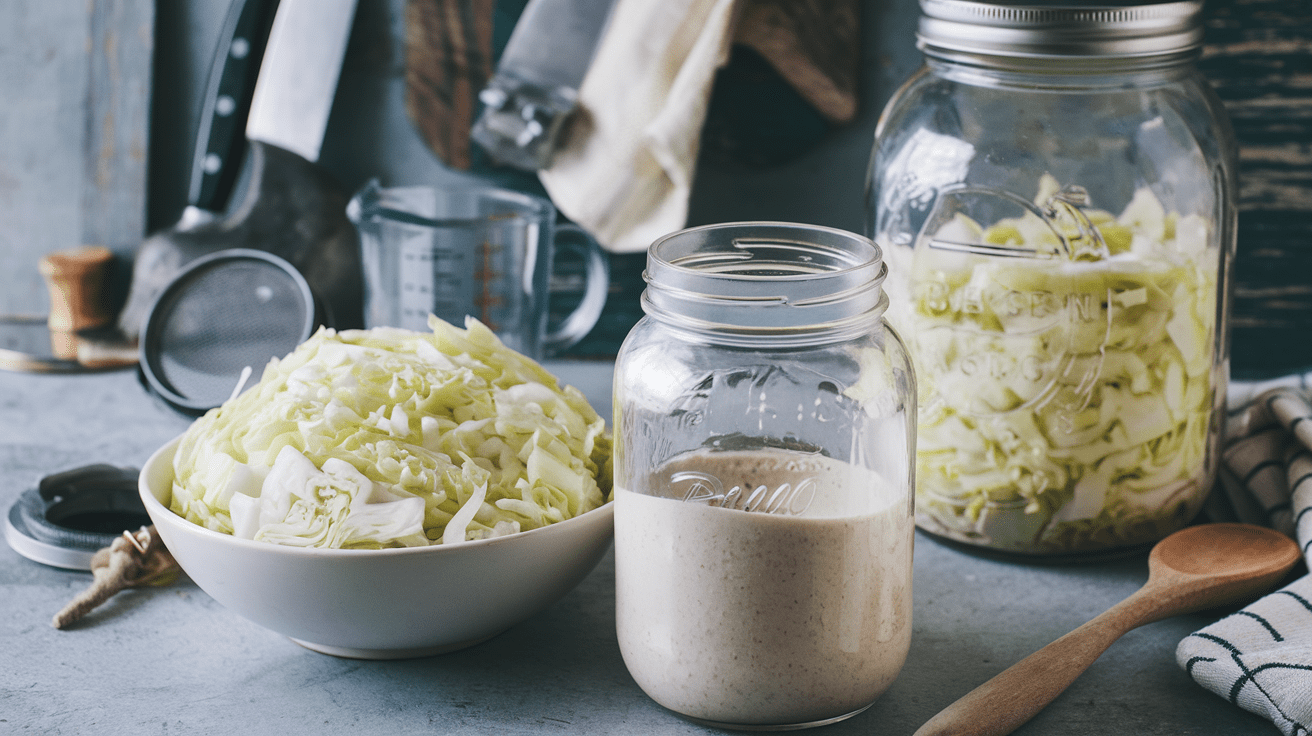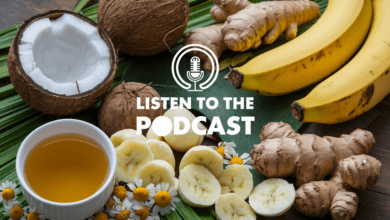Gut Health and Digestive Wellness: Your Complete Guide

Welcome to your journey towards better gut health and digestive wellness! Our bodies are amazing, and the gut plays a super important role in keeping us healthy. Let’s explore digestive health and find out how to keep our tummies happy.

December 27, 2024 ·
12 Min, 44 Sec · By All Perfect Health
#003: Explore the vital role of gut health in immunity, mood, and sleep. Learn to spot signs of imbalance, discover gut-friendly foods, and adopt simple lifestyle habits for better digestion and overall well-being. Empower your journey to a healthier, happier you!
Key Takeaways
Aspect |
Key Points |
Gut Importance |
– Home to trillions of microbes– Affects immune system, mood, and sleep– Often called the “second brain” |
Signs of Gut Issues |
– Digestive discomfort– Fatigue– Skin problems– Mood changes– Sleep disturbances |
Gut-Friendly Foods |
– Fruits and vegetables– Whole grains– Fermented foods– Lean proteins |
Lifestyle Habits |
– Regular exercise– Adequate sleep– Stress management– Proper hydration |
Understanding Your Gut: The Fascinating Basics
Your gut is like a busy city inside your body, full of life and activity. It’s home to trillions of tiny microbes that help with digestion, absorbing nutrients, and keeping you healthy. These microbes are so important that scientists call the gut our “second brain” because it affects so many things in our body!
When your gut is healthy, it helps your whole body work better. It does more than just digest food – it helps your immune system, affects your mood and mental health, and even influences how well you sleep. The connection between your gut and brain is so strong that scientists call it the gut-brain axis. This shows why taking care of your gut is really important for your overall health.
Recognizing the Signs of an Unhappy Gut
Sometimes, the balance of microbes in our gut can get messed up, which can cause health problems. It’s important to pay attention to your body and notice when your gut might be unhappy. Here are some signs that your gut might need some extra care:
Signs of an Unhealthy Gut
- Stomach discomfort, like bloating or constipation
- Feeling tired often
- Skin issues
- Mood changes or feeling worried
- Trouble sleeping
If you notice these symptoms, don’t worry too much. There are many ways to help your gut get back to being healthy.
They Lied to Us
Does your gut microbiome ever recover from antibiotics? If you understood what antibiotics really do to gut health, you might think twice about taking them. Find out about the biggest myth about your microbiome and the importance of human microbes.
Nourishing Your Gut: The Power of Good Food
One of the best and easiest ways to keep your gut healthy is by eating good food. The microbes in your gut love certain types of food that help them grow and do their job better. Some foods can even reduce inflammation in your body, which is great for your gut and overall health.
To keep your gut happy, try eating these gut-friendly foods:
- Fruits and vegetables: These are packed with fiber, vitamins, minerals, and antioxidants. Fiber is like food for your good gut bacteria.
- Whole grains: These give you energy that lasts and help keep your digestion regular.
- Yogurt and fermented foods: These have good bacteria that can help balance your gut microbes.
- Lean proteins: Things like chicken, fish, and beans are easy to digest and give your body important building blocks.
- Nuts and seeds: These have healthy fats, protein, and fiber that support gut health and give you energy.
- Herbs and spices: Many of these can help reduce inflammation and fight bad microbes in your gut.
Remember, eating a variety of foods is key to a healthy gut. The more different healthy foods you eat, the more diverse and strong your gut microbes will be, which leads to better overall health.
Healthy Habits for a Happy Gut
While eating right is super important for gut health, other parts of your life also affect how your tummy feels. Here are some things you can do to improve your gut health and feel better overall:
Key Points for Digestive Health
- Eat a variety of foods to support a diverse gut microbiome
- Include fiber-rich fruits and vegetables in your diet
- Stay hydrated by drinking enough water throughout the day
- Exercise regularly to help keep your digestive system moving
- Manage stress through relaxation techniques or meditation
- Get enough sleep to allow your digestive system to rest and repair
Your gut health directly impacts your skin health.
An imbalanced gut microbiome increases inflammation, leading to acne, eczema, and rosacea.
Leaky gut allows toxins to enter your bloodstream, which can cause skin flare-ups.
Solutions for a healthy gut:
-Add fermented foods:…
— Mark Hyman, M.D. (@drmarkhyman) December 18, 2024
Trying meditation can be a great way to manage stress and help your gut. It’s like giving your mind and body a mini-vacation, helping you relax and feel balanced.
Getting Help for Gut Health Problems
Even if we try our best to keep our gut healthy through good food and habits, sometimes our tummies might still need extra help. If you keep having digestive problems that don’t go away, it’s important to talk to a doctor. They can help figure out what’s wrong and suggest ways to make your gut feel better.
Sometimes, doctors might suggest special diets or treatments to help your gut. For example, a bland food diet can be good if your tummy is feeling extra sensitive. This diet includes foods that are easy to digest, giving your gut a chance to rest and heal.
Your Gut and the World Around You
It’s cool to think about how our gut health is connected to the world around us. Things in our environment like air quality, water cleanliness, and even pollution can affect our digestive system and overall health. This shows how important it is to care for our environment and make choices that are good for the planet when we can.
By taking care of our environment, we’re not just helping the planet – we’re also helping our own gut health and well-being. This way of thinking about health reminds us that our bodies are part of a bigger picture, and that being truly healthy means living in harmony with our environment.
Your Unique Gut Health Journey
As we finish exploring gut health, remember that everyone’s digestive system is different, just like everyone’s fingerprints are different. What works great for one person might not work the same for another. The key to having a healthy gut is to listen to your body and find out what combination of foods, habits, and self-care works best for you.
Improving your gut health is a journey, not something that happens overnight. Small, steady steps towards better habits can make a big difference in how your tummy feels over time. Whether you’re trying new healthy foods, starting to meditate, drinking more water, or just paying attention to how different foods make you feel, each good choice you make is a step towards a happier, healthier gut.
Are you ready to start your own gut health adventure? Your digestive system – and your whole body – will thank you for taking care of it. Remember, the path to a healthy gut is about learning about yourself, being patient, and taking consistent care. Here’s to your health, energy, and the exciting journey ahead!
Frequently Asked Questions About Gut Health
-
Why is the gut often referred to as the “second brain,” and what does this imply about its importance to overall health?
- The gut is often called the “second brain” due to the complex network of neurons and the extensive communication pathway between the gut and the brain, known as the gut-brain axis. This intricate connection means that the gut not only handles digestion but also significantly impacts various bodily functions, including mood regulation, mental health, immune function, and even sleep patterns. Therefore, a healthy gut is essential for overall physical and mental well-being.
-
What are some common signs that might indicate an unhealthy or imbalanced gut?
- Signs of an unhappy gut can manifest in a variety of ways. Common symptoms include digestive discomfort such as bloating, constipation, or irregular bowel movements. Other indicators can include persistent fatigue, skin problems like acne, eczema, and rosacea, noticeable mood changes or increased anxiety, and experiencing difficulty sleeping. If you notice multiple of these symptoms, it may be worth assessing your gut health.
-
What types of foods are particularly beneficial for promoting a healthy gut microbiome?
- A diet rich in diverse plant-based foods is crucial for gut health. Focus on incorporating a variety of fruits and vegetables, which are rich in fibre, vitamins, and minerals that feed the beneficial microbes in the gut. Include whole grains for sustained energy and regular digestion. Fermented foods like yogurt, kefir, and sauerkraut are also valuable, as they contain beneficial bacteria that can help balance the gut microbiome. Finally, lean proteins, nuts, and seeds, alongside herbs and spices, provide essential nutrients and promote a healthy, diverse gut.
-
Beyond diet, what lifestyle habits are essential for maintaining a healthy gut?
- In addition to a balanced diet, several lifestyle habits can impact your gut health significantly. Regular exercise helps keep the digestive system moving and functioning well. Adequate sleep allows your digestive system to rest and repair. Stress management, through techniques like meditation or yoga, can reduce the negative impact stress has on the gut. Proper hydration by drinking sufficient water throughout the day is also necessary for effective digestion and overall gut function.
-
How does gut health relate to skin health, and what role does inflammation play in this connection?
- There is a strong link between gut health and skin health, with an imbalanced gut microbiome often leading to inflammation throughout the body, including in the skin. When the gut is unhealthy or there is an imbalance in gut bacteria, it can cause inflammation, which might show up as skin problems like acne, eczema or rosacea. A ‘leaky gut’ can also occur, allowing toxins to enter the bloodstream and trigger skin flare-ups. Therefore, a healthy gut can improve your skin.
-
Can meditation and relaxation techniques truly impact gut health?
- Yes, meditation and relaxation techniques are beneficial for gut health due to the strong gut-brain axis. When we experience stress, the digestive system can be negatively affected. Engaging in stress-reducing activities like meditation, deep breathing exercises, or yoga can promote a sense of calm. This in turn can help balance gut microbes and improve overall digestive function by reducing stress related inflammation.
-
What should you do if you suspect you have persistent gut health problems that do not resolve with dietary and lifestyle changes?
- If you continue to experience digestive problems despite making healthy diet and lifestyle changes, it’s vital to seek medical advice from a healthcare professional. A doctor can help identify the underlying issues and recommend appropriate treatments, which may include specific dietary plans or other interventions to help restore your gut health and improve your overall well-being.
-
How does our environment affect our gut health, and why is this important to consider?
- Environmental factors such as air quality, water purity, and exposure to pollution can impact our digestive system and overall health. Contaminants in the environment can disrupt the balance of gut bacteria and potentially lead to inflammation or other gut problems. This underscores the importance of taking care of our planet as well as our bodies. Considering the broader environmental context is essential when looking at how to maintain personal health.




